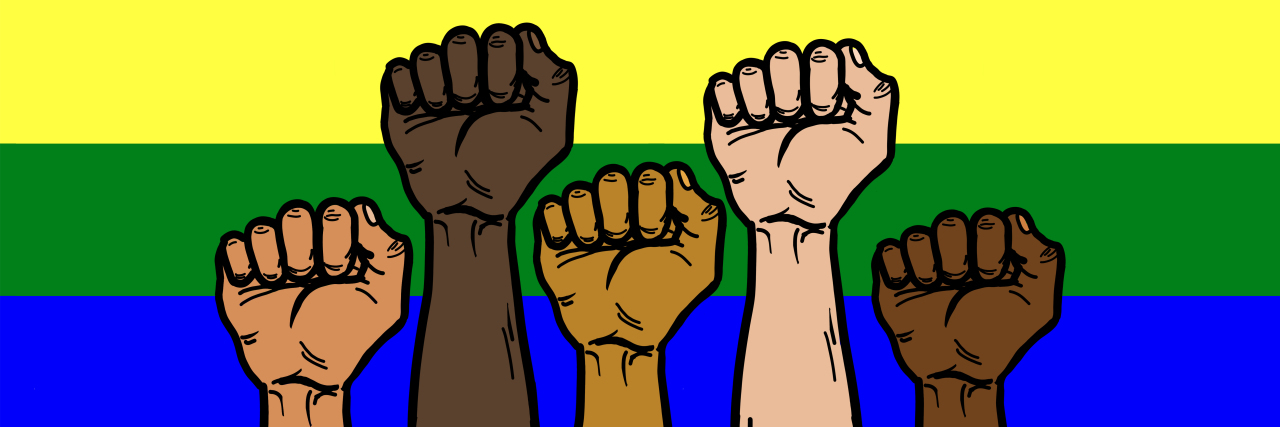Politics is often a subject most people don’t want to tackle. However as a disabled and mental health advocate, I believe it should be my and other advocates’ priority to use our influence and platform to speak out about disability politics.
I have often heard people say that talking about hot topics, such as Black Lives Matter and the rights of LGBTQ+ people doesn’t have a place on disability advocacy pages. I am here to argue otherwise. Disability is political, and so is disability advocacy. Disability can intersect with any marginalized group. To not amplify and advocate for those voices within our community is dividing us further.
Being disabled places me as part of a marginalized minority group. Within that minority are other smaller disabled marginalized groups. As a disabled cis white woman, I have had my fair share of dealing with ableism, gaslighting and medical trauma. However, I have never been treated this way due to the color of my skin or my sexual orientation.
This year marks the 30th anniversary of the Americans With Disabilities Act. If you haven’t seen the documentary “Crip Camp,” please check it out. It discusses the protests and sit-ins that had to take place for those with disabilities to get Section 504 and the ADA in place. This affirms that disabled advocacy is in fact political.
Disability is political when we have to fight our government to get equal treatment.
Disability is political when disabled BIPOC and LGBTQ+ people are being ignored, mistreated and dying because of the color of their skin and sexual orientation.
We all have different stories to share, but when we decide to ignore the political part of our disability advocacy, we ignore our fellow disabled minorities.
So what can we do as fellow disabled advocates or partners to continue the discussion about disability in politics? What can we do to help out disabled minorities? I understand many of us who are disabled cannot protest, however, there are many ways to amplify, advocate and make disability advocacy intersectional.
Here are several small ways to amplify, advocate and diversify your disabled advocacy, whether it’s on social media or in everyday life.
1) Follow, post, repost and/or share Disabled Black voices. Change up your feed. How do disabled BIPOC and LGBTQ+ stories differ from your personal experiences? Share these experiences. Follow and amplify disabled black voices. Make a post or share in stories your favorite disabled BIPOC or LGBTQ+ advocates.
2) Educate yourself. Learn about systematic racism through books, media, art and podcasts. What are the facts about how the disabled BIPOC and LGBTQ+ community are treated in the medical community? Share those facts with others and on your pages.
3) Talk to family and friends about racism and homophobia. This might be small but can be so powerful. Share your thoughts on what is going on in the disabled community and how discrimination disproportionately affects minorities.
4) Get involved. Join a peaceful protest, contact your elected officials, sign petitions.
5) Make protests accessible.
6) Donate to causes and support disabled BIPOC and LGBTQ+ businesses and creators.
Advocate, amplify and diversify.
Getty image by Nalidsa Sukprasert.

